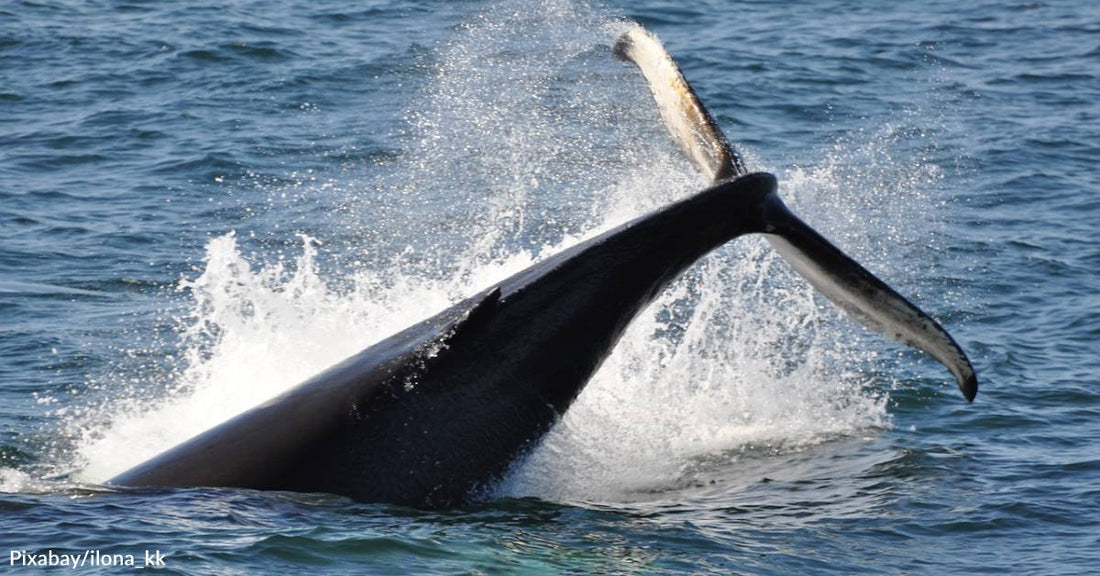Report From Iceland Notes it Can Take Harpooned Fin Whales Hours to Die
Rebecca West
A recent report out of Iceland conflicts with the country's animal welfare objectives after it was revealed some harpooned fin whales can spend hours dying slow, miserable deaths.
According to a report by the Icelandic Food and Veterinary Authority, some whales have taken hours to die during Icelandic whale hunts, which were slated to end by 2024.
In their attempts to investigate, the organization examined several fin whale carcasses shot with explosive harpoons during hunts in 2022. What they uncovered was that nearly 40 percent of the whales involved struggled for roughly 11 and a half minutes before finally perishing, while two others took more than an hour to die. A quarter of the whales had to be harpooned a second time. Ultimately, only 59 percent were killed instantly.
Harpooning Whales
Described as "alarming" by Iceland's Minister of Food, Agriculture, and Fisheries, the report surmised that the killing of some of these whales had taken far too long. While the provisions of the Animal Welfare Act on hunting hadn't technically been violated, it questioned whether or not the hunting of large whales like these could/would actually meet animal welfare standards before referring its findings to an expert council to decide.
In the meantime, animal activists described the situation as intolerable and unacceptable, calling for the Icelandic government to put a halt to all whale hunts.
"This alarming report underscores the need for a discussion in Iceland about the values we want to be known for. I believe that industries incapable of guaranteeing animal welfare should be considered part of our past rather than our future. This report, along with the expert council on animal welfare's findings, will serve as essential background material for making decisions about the future of whaling post-2023," Svandís Svavarsdóttir, Iceland’s minister of Food, Agriculture, and Fisheries, stated.
Bans on Whale Hunting
In spite of a ban on commercial whaling that's been in place since 1986 per the International Whaling Commission, Iceland — along with Japan and Norway — hunts whales for commercial purposes even though demand for oil, meat, and baleen has diminished.
Svavarsdóttir noted in 2022 that Iceland had plans to end whaling in 2024, and in August of that year the ministry issued a regulation requiring that the Food and Veterinary Authority carry out regular inspections of whaling hunts, to promote animal welfare.
Senior director at the International Fund for Animal Welfare (IFAW), Patrick Ramage, opined: "Whatever their views on whaling, both Icelanders and the international community will be horrified by these findings. No animal – however it is killed – should suffer for such a long time. Whales are sentient, intelligent, and complex creatures that suffer both physically and psychologically during this traumatic massacre.
"There is no humane way to kill a whale at sea. This new evidence underscores how outdated this practice is. It has to end immediately – no one in Iceland is dependent on this meat."
Icelandic Nature Conservation Association
In 2022, whaling boats were monitored by the staff of the Norwegian Fisheries Agency on behalf of the Food and Veterinary Authority. Among 36 whales harpooned more than once, five were shot three times, and four had to be shot four times. One gruesome example includes a whale with a harpoon in its back that was chased unsuccessfully for five hours.
Árni Finnsson, the chair of the Icelandic Nature Conservation Association, stated, "This killing is inhumane. It has to stop. There is no economic benefit for Iceland, and it undermines the country's record as a pro-conservation nation."
Danny Groves, spokesperson for Whale and Dolphin Conservation, added, "We've known for a long time that the time to death in these hunts can take 20-25 minutes. It will be an agonizing death because these are sentient beings. They will experience great pain. You're using a grenade-tipped harpoon from a moving ship to a moving target."
Nicknamed the greyhounds of the sea, fin whales are the second largest mammals in the world, can live up to 100 years, and are listed as endangered under the Endangered Species Act and depleted under the Marine Mammal Protection Act.




